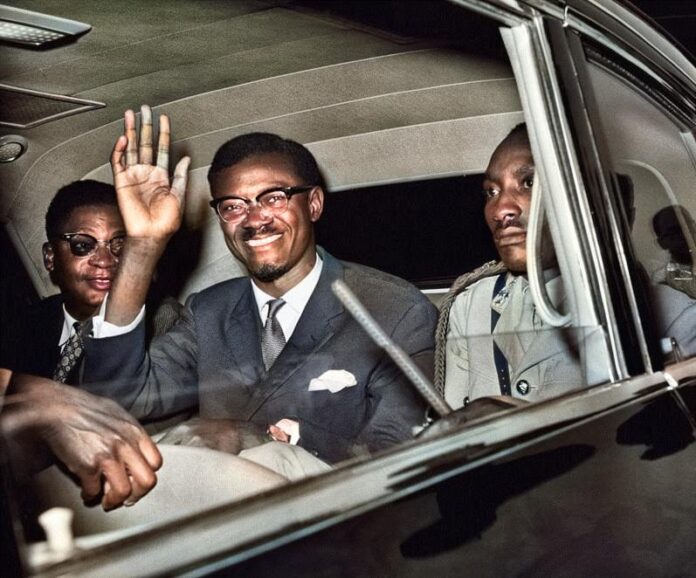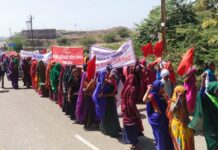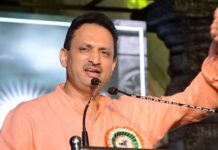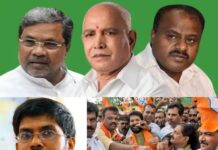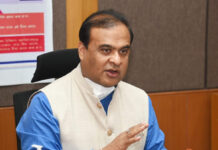2nd July 2020 marks the 95th birth anniversary of the Congolese politician and revolutionary Patrice Lumumba. He was the first Prime Minister of the independent Democratic Republic of the Congo (Then the Republic of Congo). He was a decolonization crusader who worked for the independent and republic nation of Congo.
Congo under Leopold and Belgium
It was in 1880 that King Leopold II of present-day Belgium took over Congo as a territory. It was not just the lands of Congo which were abundantly rich in resources that were exploited under his rule but also the Congolese people. He exploited the lives of Congolese to earn profits from highly valued resources including ivory, rubber, and diamonds. During these years, millions of Congolese were subjected to the most inhumane abuses while employing the cruelest methods including limb amputations, sexual abuse, chains, lashes and kidnappings. Belgian state also extended its support to such unacceptable practices by granting him loans.
However, by 1908 owing to international pressures that accused him of violating human rights, he was forced to transfer powers to Belgium. This was how the region came to be known as the Belgian Congo. While the instances of violence reduced in the Belgian Congo, the practices of slave labour was all-pervasive including the mines of gold copper and tin. This led to the concentration of the wealth and privilege amongst the Belgian interests. Thus, the socio-political and economic demands of the Congolese people and the working classes were not addressed. It is in this backdrop that pro-independence groups emerged in the region demanding sovereignty of Congo. Lumumba initiated one such group named Congolese National Movement (CNM).
Lumumba’s early years
Lumumba was born in Onalua village in the Kasi province of the Belgian Congo. Being a member of a small Batetela ethnic group, he had developed an all-Congolese vision from his early years. This was in contrast with his political rivals Joseph Kasavubu and Moise Tshombe. They derived support from powerful ethnic groups and followed regional political thoughts. He used to write essays and articles for Congolese journals in his early years. He moved to Leopoldville to become a clerk with the postal department after he received full Belgian citizenship.
Politics of Lumumba
In 1955, Lumumba became the regional president of a purely Congolese trade union of government employees. This union was not affiliated to either of the Socialist or Roman Catholic Trade-Union federations. Then he became active with the functioning of the Belgian Liberal Party. In 1956, he was invited for a study tour of Belgium under the auspices of the minister of colonies. Later, he served a year of imprisonment on allegation of cash embezzlement with the postal department.
He became even more active in politics post imprisonment and in October 1958 along with other Congolese leaders launched the Congolese National Movement (CNM). It was the first nationwide Congolese political party. In December, he attended the first All-African People’s Conference in Ghana and was made a member of the permanent organization set up by the conference. With pan-African goals, he believed that tribal differences could be overcome with unitary political structures and feed to create a nationalist sentiment.
After Lumumba and CNM led several protests, under the pressures of the nationalist movement, the Belgian Government announced a program for Independence. This was intended to be started with local elections in 1959. However, the nationalists understood that such moves would result in the installation of Belgian puppets and called for a boycott of these elections. Belgian authorities took to repressions. In October, Lumumba was imprisoned on charges of inciting riots.
Post this, the CNM changed strategies, contested elections, and sweepingly won the elections in Stanleyville. Lumumba was released on CNM’s demand as they refused to participate in the Round-Table Conference of all political parties called in 1960. It was in this conference that Congolese demanded an immediate transfer of powers and government to themselves. June 30 was decided as the day of independence and was dated for transfer of powers.
Lumumba’s Prime Ministership
In the national elections preceding the independence, CNM won elections despite multiple parties contesting it. Lumumba was elected as the first Prime Minister. However, problems did not get resolved with independence.
Lumumba’s anti-imperialism and his vision of a united Congo made him an enemy to both Belgium and the United States. Katanga region was the heart of the country’s mining wealth and colonial companies faced a hit when the Congo became an independent nation. Secessionist sentiments were fueled by the Belgian government and his political opponent Toshombe. The mutiny of the military forces only grew stronger with the support of the US. The US had its own interests in the availability of Uranium in the Katanga’s mines.
For Lumumba, Congo’s natural resources had to benefit its people and Africans in general and not the mining industries of the west. He demanded before the UN, the rights of sovereignty and inviolability of territory, and called for the immediate expulsion of Belgian troops. However, the UN ignored this request while functioning as an extended arm of the capitalist forces of the west. Lumumba then sought support from USSR to safeguard the interests of his nation.
Military Coup and Assassination of Lumumba
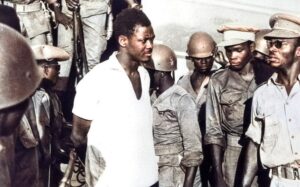 The United States and Belgium covertly funneled cash and aid to rival politicians. On September 5th, 1960, President Kasavuby dismissed Lumumba from Prime Ministership. Lumumba contested the legalities of the move. This led to the creation of two groups claiming powers of the legal central government.
The United States and Belgium covertly funneled cash and aid to rival politicians. On September 5th, 1960, President Kasavuby dismissed Lumumba from Prime Ministership. Lumumba contested the legalities of the move. This led to the creation of two groups claiming powers of the legal central government.
Soon after, a military coup was led by Congolese Army leader Joesph Mobutu. Lumumba was arrested, beaten, and tortured. He was executed on 17th January 1961 by firing squads. His body was cut up and dissolved in sulfuric acid and bones ground and scattered by the Belgian authorities.
In popular culture, Lumumba is viewed as one of the “fathers of independence” of the Congo. Malcolm X called him “the greatest Black man who ever walked the African continent, who didn’t fear anybody and had the people in power so scared they had to kill him.” Che Guevara called Lumumba a “martyr of the world revolution,” after hearing of his assassination.
Read about Timelessness of George Orwell and Animal Farm

















